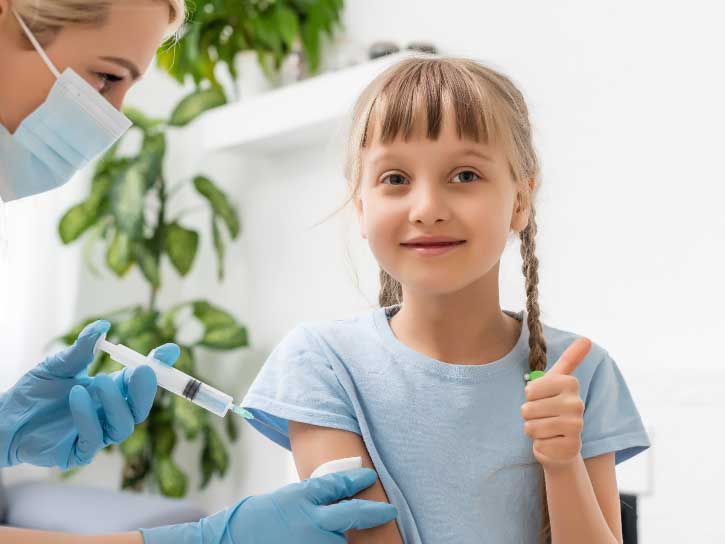What are vaccines and why are they so important for our health?
What are vaccines and why are they so important for our health?

One hot topic of conversation in the last couple of years has been immunisations. Particularly discussion around the development of a vaccine for COVID-19, rolling it out around the world, and much (much) discussion in the community about efficacy, safety, different brands for different cohorts, boosters…the topics go on!
We think we’ve probably talked about the COVID-19 vaccine enough, but what about vaccines that we all get, sometimes at birth, just as a matter of course? Why do we vaccinate our children, or to travel and what exactly are vaccines? We’ll take a closer look at those questions in this blog post.
What is a vaccine?
A vaccine is like a practice run for your immune system. It uses your body’s natural defence system, and shows it how to respond to a particular virus without actually needing to fight that live virus. Having had a test run with the vaccine, when your body encounters the virus later on it will recognise it, mobilise the antibodies again, and take on the virus in the same way as it responded during its training.
It relies on your body’s immune system to remember each virus, and remember how to fight it, even years after receiving a vaccine.
What vaccines do we all receive, and when?
In Australia, we have a national immunisation register, detailing out which vaccines children should receive and when. As an adult, you might also get other vaccines, such as when you travel, or for tetanus, or for new viruses such as COVID-19.
Many of these vaccines are given for free to ensure that the entire population can access them. This is not just to ensure that everyone is able to receive them, regardless of their financial status, but also because it helps us to achieve herd immunity, widespread immunisation to stop spread of the viruses we’re all immunised for in the community.
Vaccines we receive as young children include:
• Hepatitis B • Diphtheria • Tetanus • Pertussis • Polio • Haemophilus influenzae type b • Rotavirus • Pneumococcal • Meningococcal • Measles • Mumps • Rubella • Chickenpox
Then for adolescents, human papillomavirus is added in at around 12 years of age.
Throughout life we also receive other immunisations such as annual flu shots, pertussis for pregnant women and pneumococcal and shingles for our older population.
How do we keep track of our vaccination status?
In the old days, everything was written down in a health book that you had to be careful not to lose, but thankfully these days we can rely on electronic record keeping to keep track of what we’ve had and when.
In Australia, the Australian Immunisation Register (AIR) is responsible for keeping a record of vaccinations administered. You can access these records for you and your children via your mygov account, which provides an electronic record of your immunisations. When you receive an immunisation from a doctor or nurse, this is submitted to Medicare, who then record it on your immunisation record. Individuals can access these online, and generate a record to save as a pdf or print out. It’s all very simple really!
Your GP can help you keep on top of your vaccination requirements, especially for your children in the first few years when there is quite a lot to keep track of. With SwiftDoc, you can speak to the same GP every time, building up a picture of your health over time, and ensuring that nothing gets missed along the way.
If you want to talk to a GP about immunisations and what you or your children might need, book an appointment with a SwiftDoc GP to get started.
Sources: Australian Government, Department of Health. National Immunisation Program Schedule. Accessed April 2022.
Australian Government, Services Australia. Australian Immunisation Register. Accessed April 2022.
World Health Organisation. Vaccines and Immunisation: What is a vaccination? Accessed April 2022.